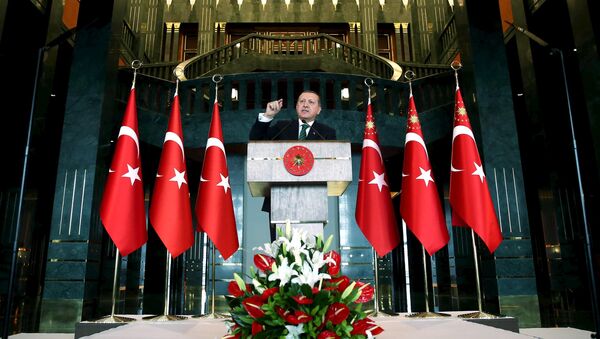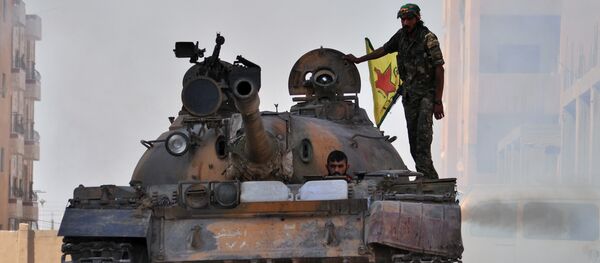"The downing of a Russian aircraft on November 24, 2015, has damaged Turkey's relations with Russia to an extent that the bilateral ties could hardly be improved," the liberal daily observed. The incident took place at a time when Moscow became Ankara's major economic partner. "Bilateral trade turnover reached $30 billion. Approximately 4 million tourists from Russia visited Turkey annually."
These positive developments have been brought to nothing after a Turkish fighter jet shot down the Russian Su-24 bomber out of the Syrian skies, citing airspace violations. Russian officials and the pilot confirmed that the plane, which was on an anti-Daesh mission in northern Latakia, never crossed into Turkey and did not receive any warnings.

"Both sides should make an effort to restore relations to their previous level, but Turkey has sustained a far greater loss," Radikal noted. "Moreover, this situation has affected and will have a larger impact on Turkey's relations with other post-Soviet countries."
In February, Luxembourg Foreign Minister Jean Asselborn sent Erdogan a clear signal that the alliance would not support Turkey, should it spark a war with Russia. He told Germany's Der Spiegel that the bloc could not "allow itself to be pulled into a military escalation with Russia" as a result of recent tensions.
"Evidently, Turkey's willful foreign policy bemuses even its allies, particularly the United States. Almost all high-level bilateral talks end with both sides agreeing to disagree on major international issues," the media outlet noted.
"In the eyes of the international coalition, in the eyes of the United States, Turkey will probably no longer be seen as an asset but as a liability," he lamented. "It has lost its honest broker position to resolve problems in the region."
These are not the only troubles Ankara has to deal with, the daily warned. With Iran's gradual return to the international arena and the unresolved Kurdish issue, "foreign policy dilemmas which Turkey is facing are growing like a snowball."




